Washington Cannabis Expungement & Felonies
Discover comprehensive insights into the Washington cannabis expungement process through these detailed and informative Frequently Asked Questions (FAQ).
How did Washington handle expungements for cannabis?
Through the Marijuana Justice Initiative, individuals convicted of misdemeanor marijuana possession offenses who were 21 years or older at the time of the offense can apply to the sentencing court to vacate their conviction record for the marijuana offense.
- Criteria are: It must be an adult (21+) conviction for misdemeanor marijuana possession;
- Prosecuted under Washington state law (RCW), not a local ordinance;
- The conviction must have occurred between January 1, 1998 and December 5, 2012;
- It must be the only conviction on the individual’s criminal record.
All felonies? Only non-violent?
Misdemeanor possession is the limitation.
Were there any crimes related to cannabis that disqualified someone from applying as a social equity applicant?
Previously, a past felony conviction could prevent individuals from obtaining a license to operate within the legal cannabis market. However, new rules, effective from 2021, have relaxed these restrictions.
Under these new rules, a serious felony conviction within the past 10 years will trigger an in-depth review of a person’s application, but the rules no longer state that people with felonies will normally be denied licenses. Less serious felonies, specifically one Class C felony on a person’s record, won’t be enough to hold up their license application. Additionally, if someone has less than three misdemeanor convictions in the past three years, that won’t prompt a deeper review.
Status of Current Social Equity Program:
A 2020 law, E2SHB 2870, created a Social Equity in Cannabis Program. This program is part of the state’s licensing process and is aimed at enhancing social equity in the cannabis industry licensing process.
The program’s Social Equity Plan requires that applicants detail how issuing a cannabis retail license to them will meet social equity goals.
A Social Equity Task Force was established to make recommendations about establishing a social equity program for the issuance and re-issuance of existing cannabis licenses.
The Cannabis Social Equity Technical Assistance Grant Program awards grants based on the strength of the social equity plans submitted by cannabis license applicants and cannabis licensees, with a focus on licenses issued between April 1, 2023, and July 1, 2024
How Can Point Seven Group Help?
The team of cannabis consultants and professionals at Point Seven Group have worked extensively in the U.S. and international cannabis markets and are familiar with the unique challenges of the cannabis industry. Follow us on social media to stay up to date with more cannabis industry updates!
- Wayzata moves to open city-run weed dispensary
 The City of Wayzata is considering opening its own recreational cannabis dispensary sometime next year. On Tuesday, Wayzata’s City Council and mayor approved a contract with Colorado-based consulting firm Point7 to draft a business plan for the possible municipal dispensary. This would be the city’s …
The City of Wayzata is considering opening its own recreational cannabis dispensary sometime next year. On Tuesday, Wayzata’s City Council and mayor approved a contract with Colorado-based consulting firm Point7 to draft a business plan for the possible municipal dispensary. This would be the city’s … - Indiana Cannabis Legalization: 2024 Update
 The Midwest has become a bustling hub for cannabis policy and industry, with states like Michigan, Illinois, and Ohio leading the charge in cannabis legalization. However, Indiana’s stance on cannabis remains a topic of significant interest and debate. As we delve into the status of …
The Midwest has become a bustling hub for cannabis policy and industry, with states like Michigan, Illinois, and Ohio leading the charge in cannabis legalization. However, Indiana’s stance on cannabis remains a topic of significant interest and debate. As we delve into the status of … - Cannabis Expungement and Social Equity: Proven & Failed Concepts
 In the realm of cannabis expungement and social equity, examining both proven and failed concepts is crucial for understanding the complexities of justice reform and equity within the cannabis industry. Proven concepts include initiatives such as automatic expungement processes, which streamline the clearance of certain …
In the realm of cannabis expungement and social equity, examining both proven and failed concepts is crucial for understanding the complexities of justice reform and equity within the cannabis industry. Proven concepts include initiatives such as automatic expungement processes, which streamline the clearance of certain …

